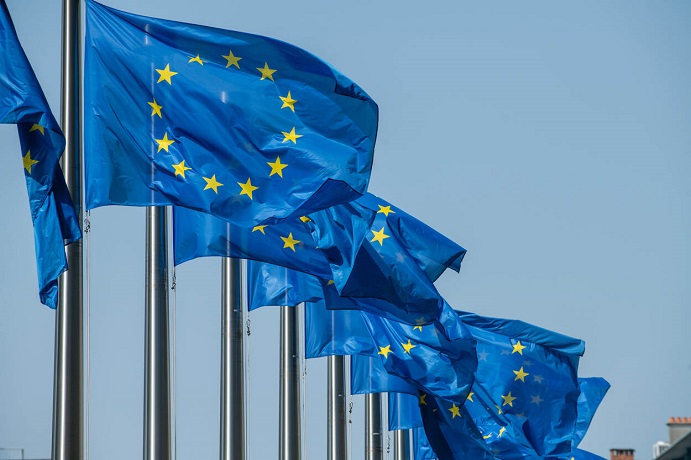Ramona Wadi
Middle East Monitor / June 2, 2020
The coronavirus pandemic in the occupied West Bank has not deterred Israel from demolishing Palestinian dwellings and structures, including those funded by the EU. In the last week of May, the EU representatives in Jerusalem and Ramallah issued a statement in which they noted the ongoing demolitions as well as the cooperation between the Palestinian Authority and Israel regarding the pandemic.
“In line with the EU’s long-standing position on Israel’s settlement policy – illegal under international law – and actions taken in that context, such as forced transfers, evictions, demolitions and confiscations of homes, the EU urges the Israeli authorities to halt demolitions of Palestinian structures,” the joint statement concluded.
Statements alone have not stopped Israel from its ongoing cycles of forced displacement of the people of Palestine. Moreover, the attempt to minimise the effect of any criticism of Israel by praising a fragment of its cooperation related to the pandemic is indicative of the trend to force concessions from the Palestinians. At a time when annexation is imminent, the EU would have done better to pay heed to the few voices calling for action to be taken against the occupation state.
An interview with French Ambassador to Israel Éric Danon illustrates the rationale behind the EU’s position vis-à-vis Israel. Speaking out against annexation, as France did, “Does not mean to threaten Israel,” claimed the Ambassador. If Israel proceeds with annexation, he clarified, “This qualification implies that there would be consequences, as it would not be considered ‘serious’ otherwise.” France is just affirming its stance, the ambassador explained. And in light of the EU’s repetitive statements when it comes to violations of international law contributing to the forthcoming annexation, the bloc is doing the same. So far, the only purported opposition that Israel has run into consists of repeated statements informing the world that the unilateral action is against international law. Israel is calling EU countries “outspoken” against annexation, yet so far there has been nothing to suggest that any punitive measures will be imposed.
By refusing to take action to stop demolitions and annexation, the international community, including the EU, is giving Israel ample time to finalise its violent strategy. Israeli media reported that Defence Minister Benny Gantz has given orders to “step up preparations [for annexation] ahead of diplomatic efforts on the agenda in the Palestinian arena.”
If the EU fails to articulate a stance against Israel’s latest planned violence, it will be giving the colonial entity the opportunity to shape the annexation narrative as an alleged security concern. Earlier examples of Israeli violence which garnered media attention proved that the international community allowed the Israeli narrative to take precedence, more so since the Palestinians were blamed for instigating Israel’s aerial bombardment of the Gaza Strip in May last year.
The EU statements condemning displacement hold no value in terms of upholding human rights. On the other hand, appeasing Israel even when speaking about human rights violations has serious implications for the Palestinians. What will the EU say when they protest against yet more land theft by Israel? It is likely that the aggression perpetrated by the rogue state, supported overtly by the US and tacitly by the rest of the international community, will be absolved in order to promote its fictitious security narrative which forms the accepted premise of all Israeli violations of international law. Thus, Israel will continue to act with impunity. International and EU inaction in response to its crimes has been normalised.
Ramona Wadi is an independent researcher, freelance journalist, book reviewer and blogger; her writing covers a range of themes in relation to Palestine, Chile and Latin America













